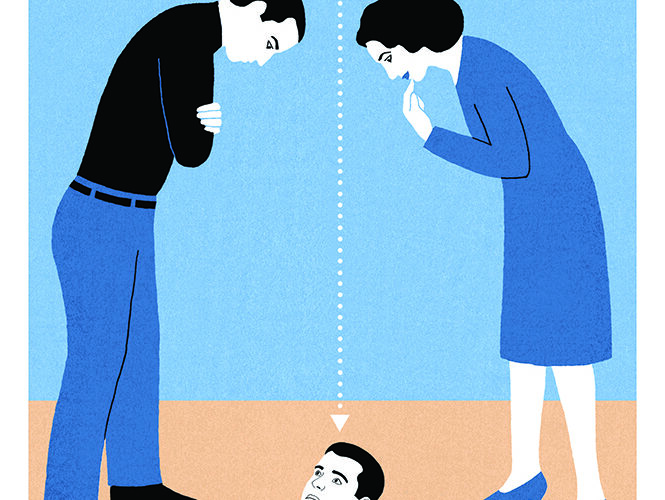The culture of second chances — and what it takes to get one
We’ve seen it a million times: a celebrity is caught in a car with a prostitute; or participated in an illegal dog-fighting ring; or posted racist, sexist, or homophobic tweets in the past. They are widely shamed and may initially deny it. But eventually they apologize and take responsibility, and in a couple months or a year, are back in the public eye with all forgiven. “We’ve constructed a cultural script with expectations one has to meet to be allowed access to another opportunity if they’ve screwed up,” says David Newman, visiting professor in sociology and anthropology.
Newman began looking into the idea of second chances — who gets them and why — a decade ago. His inquiries resulted in the 2019 book, A Culture of Second Chances: The Promise, Practice, and Price of Starting Over in Everyday Life, a wide-ranging exploration into pop culture, religion, medicine, schools, intimacy, and criminal justice.
“My initial research question was, ‘Can people change?’, but that morphed into ‘Under what circumstances do we allow people to change?’, and that opened everything up,” says Newman. The idea of second chances is so seemingly ubiquitous, he proposes, because we all want to believe in a sequential narrative to our lives. So, when we or someone else messes up, we want to retrospectively make sense of the slip. “We convince ourselves that this horrible thing happened to me because it allowed me to change my life,” Newman says.
Particularly in the United States, he says, that narrative is tied to a strong myth of individualism that says it’s up to us to get up and dust ourselves off after misfortune — which Newman found couldn’t be further from the truth. “The irony is that getting an opportunity to start over requires other people,” Newman says. Sometimes that’s literally another person, such as a spouse willing to forgive an infidelity; other times it’s a rehab center; still others, it’s society writ large, such as a media fan base willing to forgive a sexual impropriety. “We don’t do this on our own.”
Those other people, however, don’t dispense the opportunity to start over equally. While actors, sports figures, and CEOs are often allowed to start anew after a brief time-out, people released from prison are often stigmatized and shunned long after they’ve served their time. “I could have written a whole book on all of the hundreds of laws that restrict access to opportunities for convicted felons,” Newman says. Formerly incarcerated people face limitations in where they can live, who will hire them for a job, and whether they can vote, among other strictures, even though there is little evidence those restrictions prevent further crimes; in fact, they may only exacerbate a person’s ability to return to society.
Newman suggests that the double standard has more to do with who we think is “deserving” of another shot based on our perceptions of their past achievements, rather than any assessment of their ability to change in the future. Not surprisingly, he says, “all of these opportunities tend to be stratified along race and class lines,” with poor people and people of color given less leeway for redemption than the rich, white, and famous. Despite how ubiquitous second chances seem in our society, Newman concludes, they aren’t as common as we might think from watching celebrity gossip shows. “It’s not a universally available opportunity to start over again,” Newman says. “There are rules, restrictions, and costs — whether it’s a literal payment or something more metaphorical. Typically, you’ve got to give, or at least promise to give, something (whether it’s financial, behavioral, or spiritual) to get a shot at a second chance.”

